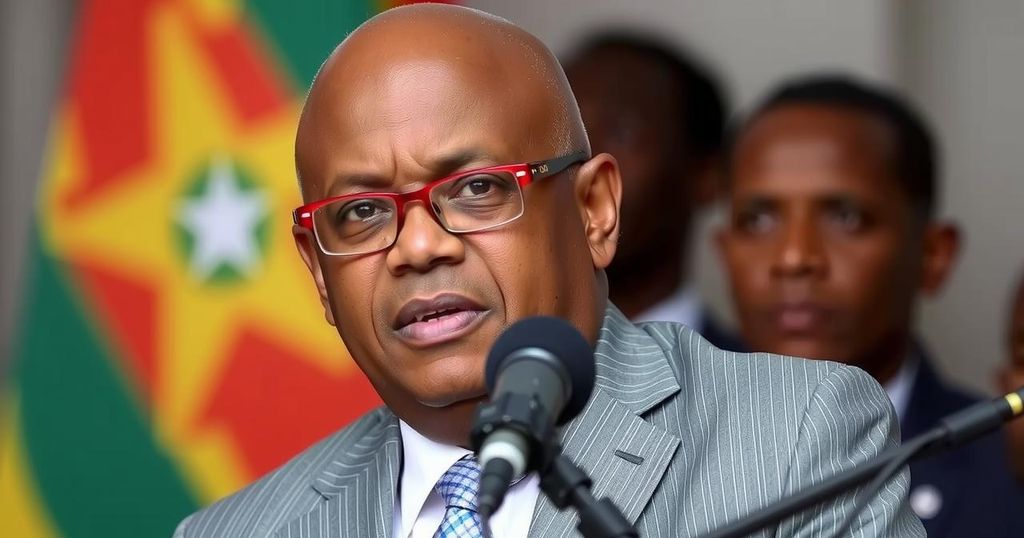Venâncio Mondlane, Mozambique’s opposition leader, has urged for national unity ahead of protests following a disputed election that resulted in significant unrest and loss of life. Despite being in self-imposed exile, he plans to declare himself president and calls for citizens to gather and sing the national anthem. The violence has led to a deteriorating economy and prompted international concern for regional stability.
Venâncio Mondlane, the leader of Mozambique’s main opposition party, has called for national unity amid escalating tensions and renewed protests following the controversial presidential election. In a Facebook live address, Mondlane, currently in self-imposed exile, encouraged citizens to come together in their neighborhoods this New Year’s Eve to sing the national anthem.
This comes amid a backdrop of violence and unrest that has seen hundreds die since October when protests erupted after his contentious electoral defeat. Following the legal confirmation of Daniel Chapo as the winner, with results indicating he secured 65% of the vote compared to Mondlane’s 24%, further civil disturbances have ensued. The toll from this unrest has tragically reached 278, encompassing both protesters and members of the security forces.
Mondlane has expressed his readiness to sacrifice his life for the opposition cause and indicated plans to declare himself president on January 15, despite being in exile. Meanwhile, Chapo has stated his intention to serve as president for all citizens, emphasizing cooperation to address ongoing concerns stemming from the electoral process.
The protests have severely impacted Mozambique’s economy, resulting in significant job loss and destruction of businesses, with more than 12,000 jobs reportedly lost and over 500 companies vandalized. The chaos is not limited to Mozambique alone, as neighboring countries are also witnessing an influx of fleeing Mozambicans, prompting heightened security measures at borders to prevent further unrest. South Africa has sent a special envoy to engage with the Mozambican president, aiming to facilitate a resolution to the crisis, following concerns over regional stability and security.
The political climate in Mozambique has deteriorated sharply in recent months after the presidential elections held in October. Venâncio Mondlane, leader of the main opposition, has vocally disputed the election outcomes, decrying the victory of the ruling party candidate, Daniel Chapo. This led to calls for nationwide protests leading to significant violence and loss of life. The unrest has raised national and international concerns as economic repercussions mount and regional security is threatened, prompting diplomatic interventions from neighboring countries. The ongoing protests are rooted in historically contentious political dynamics in Mozambique, where the ruling party, Frelimo, has held power for nearly five decades. The election process has been underscored by accusations of electoral malpractices, fueling tensions that have erupted into violence. With Mondlane calling for unity and social action among citizens while expressing his commitment to political change, the situation remains precarious with high stakes for both the country’s democratic processes and stability.
In summary, the current situation in Mozambique highlights a significant crisis stemming from disputed electoral outcomes and ongoing protests led by opposition leader Venâncio Mondlane. The calls for unity among the populace reflect a deep societal divide and an urgent need for political dialogue and resolution. As violence continues to threaten both lives and livelihoods, there are rising concerns over the broader implications for regional stability, compelling international attention and potential intervention. The future of Mozambique’s political landscape remains uncertain as both sides prepare for the unfolding events in the coming weeks.
Original Source: www.bbc.com






